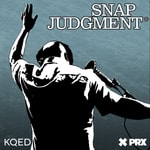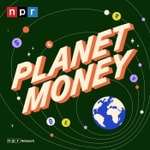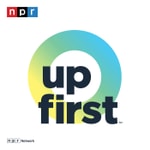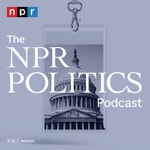Radiolab – Détails, épisodes et analyse
Détails du podcast
Informations techniques et générales issues du flux RSS du podcast.

Radiolab
WNYC Studios
Fréquence : 1 épisode/7j. Total Éps: 505

Classements récents
Dernières positions dans les classements Apple Podcasts et Spotify.
Apple Podcasts
🇨🇦 Canada - naturalSciences
28/07/2025#1🇨🇦 Canada - science
28/07/2025#2🇨🇦 Canada - General
28/07/2025#92🇬🇧 Grande Bretagne - naturalSciences
28/07/2025#1🇬🇧 Grande Bretagne - science
28/07/2025#8🇩🇪 Allemagne - naturalSciences
28/07/2025#4🇩🇪 Allemagne - science
28/07/2025#40🇺🇸 États-Unis - naturalSciences
28/07/2025#1🇺🇸 États-Unis - science
28/07/2025#4🇫🇷 France - naturalSciences
28/07/2025#2
Spotify
🇩🇪 Allemagne - science
29/07/2025#47↘🇬🇧 Grande Bretagne - science
29/07/2025#9↗🇺🇸 États-Unis - science
29/07/2025#3↘🇺🇸 États-Unis - top
29/07/2025#168↗🇩🇪 Allemagne - science
28/07/2025#45↗🇬🇧 Grande Bretagne - science
28/07/2025#11→🇺🇸 États-Unis - top
28/07/2025#175↘🇺🇸 États-Unis - science
28/07/2025#2→🇩🇪 Allemagne - science
27/07/2025#46↗🇬🇧 Grande Bretagne - science
27/07/2025#11↘
Liens partagés entre épisodes et podcasts
Liens présents dans les descriptions d'épisodes et autres podcasts les utilisant également.
See all- https://radiolab.org/newsletter
606 partages
- https://members.radiolab.org/
302 partages
- http://members.radiolab.org
270 partages
- http://facebook.com/radiolab
306 partages
- https://www.facebook.com/Radiolab
3 partages
- https://www.instagram.com/radiolab
288 partages
- https://www.instagram.com/loub747
4 partages
Qualité et score du flux RSS
Évaluation technique de la qualité et de la structure du flux RSS.
See allScore global : 73%
Historique des publications
Répartition mensuelle des publications d'épisodes au fil des années.
Big Little Questions
Épisode 599
vendredi 30 août 2024 • Durée 52:55
First aired back in 2017, here’s a show of questions and, sometimes, answers. Cause, we get a lot of questions. Like, A LOT of questions. Tiny questions, big questions, short questions, long questions. Weird questions. Poop questions. We get them all.
And over the years, as more and more of these questions arrived in our inbox, what happened was, guiltily, we put them off to the side, in a bucket of sorts, where they just sat around, unanswered. But now, we’re dumping the bucket out.
Today, our producers pick up a few of the questions that spilled out of that bucket, and venture out into the great unknown to find answers to some of life's greatest mysteries: coincidences; miracles; life; death; fate; will; and, of course, poop.
We have some exciting news! In the “Zoozve” episode, Radiolab named its first-ever quasi-moon, and now it's your turn! Radiolab has teamed up with The International Astronomical Union to launch a global naming contest for one of Earth’s quasi-moons. This is your chance to make your mark on the heavens. Submit your name ideas now through September, or vote on your favorites starting in November: https://radiolab.org/moon
Signup for our newsletter!! It includes short essays, recommendations, and details about other ways to interact with the show. Sign up (https://radiolab.org/newsletter)!
Radiolab is supported by listeners like you. Support Radiolab by becoming a member of The Lab (https://members.radiolab.org/) today.
Follow our show on Instagram, Twitter and Facebook @radiolab, and share your thoughts with us by emailing [email protected].
Leadership support for Radiolab’s science programming is provided by the Gordon and Betty Moore Foundation, Science Sandbox, a Simons Foundation Initiative, and the John Templeton Foundation. Foundational support for Radiolab was provided by the Alfred P. Sloan Foundation.
Uneasy as ABC
Épisode 597
vendredi 23 août 2024 • Durée 34:38
February 1976. A flight out of California turned catastrophic when it crashed into a farm in rural Nebraska. What happened that night at the local hospital, and crucially, what went wrong, would inspire a global sea-change in how emergency rooms operate and fundamentally alter the way doctors think in a crisis.
Special thanks to Jody and Jay Upright, Heather Talbott, Dr. Ron Simon, Dr. John Sutyak, Dr. Paul Collicott, Irvene Hughe, Maimonides Medical Center, Karl Sukhia and Vanya Zvonar.
We have some exciting news! In the “Zoozve” episode, Radiolab named its first-ever quasi-moon, and now it's your turn! Radiolab has teamed up with The International Astronomical Union to launch a global naming contest for one of Earth’s quasi-moons. This is your chance to make your mark on the heavens. Submit your name ideas now through September, or vote on your favorites starting in November: https://radiolab.org/moon
EPISODE CREDITS:
Reported by - Avir Mitra
with help from - Maria Paz Gutierrez, Sarah Qari, Becca Bressler, Suzie Lechtenberg, Heather Radke and Ana Gonzalez
Produced by - Maria Paz Gutierrez, Becca Bressler and Pat Walters
with help from - Ana Gonzalez
Original music and sound design contributed by - Maria Paz Gutierrez and Jeremy Bloom
with mixing help from - Jeremy bloom
Fact-checking by - Diane Kelly
and Edited by - Becca Bressler and Pat Walters
Sign up for our newsletter!! It includes short essays, recommendations, and details about other ways to interact with the show. Sign up (https://radiolab.org/newsletter)!
Radiolab is supported by listeners like you. Support Radiolab by becoming a member of The Lab (https://members.radiolab.org/) today.
Follow our show on Instagram, Twitter and Facebook @radiolab, and share your thoughts with us by emailing [email protected].
Leadership support for Radiolab’s science programming is provided by the Gordon and Betty Moore Foundation, Science Sandbox, a Simons Foundation Initiative, and the John Templeton Foundation. Foundational support for Radiolab was provided by the Alfred P. Sloan Foundation.
Birdie in the Cage
Épisode 584
vendredi 21 juin 2024 • Durée 44:18
People have been doing the square dance since before the Declaration of Independence. But does that mean it should be THE American folk dance? That question took us on a journey from Appalachian front porches, to dance classes across our nation, to the halls of Congress, and finally a Kansas City convention center. And along the way, we uncovered a secret history of square dancing that made us see how much of our national identity we could stuff into that square, and what it means for a dance to be of the people, by the people, and for the people.
Special thanks to Jim Mayo, Claude Fowler, Paul Gifford, Jim Maczko, Jim Davis, Paul Moore, Jack Pladdys, Mary Jane Wegener, Kinsey Brooke and Connie Keener.
We have some exciting news! In this “Zoozve” episode, Radiolab named its first-ever quasi-moon, and now it's your turn! Radiolab has teamed up with The International Astronomical Union to launch a global naming contest for one of Earth’s quasi-moons. This is your chance to make your mark on the heavens. Submit your name ideas now through September, or vote on your favorites starting in November: https://radiolab.org/moon
Subscribe to our newsletter!! It includes short essays, recommendations, and details about other ways to interact with the show. Sign up (https://radiolab.org/newsletter)!
Radiolab is supported by listeners like you. Support Radiolab by becoming a member of The Lab (https://members.radiolab.org/) today.
Follow our show on Instagram, Twitter and Facebook @radiolab, and share your thoughts with us by emailing [email protected].
Leadership support for Radiolab’s science programming is provided by the Gordon and Betty Moore Foundation, Science Sandbox, a Simons Foundation Initiative, and the John Templeton Foundation. Foundational support for Radiolab was provided by the Alfred P. Sloan Foundation.
40,000 Recipes for Murder
Épisode 469
vendredi 9 septembre 2022 • Durée 30:20
Two scientists realize that the very same AI technology they have developed to discover medicines for rare diseases can also discover the most potent chemical weapons known to humankind. Inadvertently opening the Pandora’s Box of WMDs. What should they do now?
Special thanks to, Xander Davies, Timnit Gebru, Jessica Fjeld, Bert Gambini and Charlotte HsuEpisode Credits:
Reported by Latif NasserProduced by Matt KieltyOriginal music and sound design contributed by Matt KieltyMixing help from Arianne WackFact-checking by Emily KriegerCITATIONS:Articles:Read the Sean and Fabio’s paper here. Get Yan Liu’s book Healing with Poisons: Potent Medicines in Medieval China here. Yan is now Assistant Professor of History at the University at Buffalo.Our newsletter comes out every Wednesday. It includes short essays, recommendations, and details about other ways to interact with the show. Sign up (https://radiolab.org/newsletter)!Radiolab is supported by listeners like you. Support Radiolab by becoming a member of The Lab (https://members.radiolab.org/) today.Follow our show on Instagram, Twitter and Facebook @radiolab, and share your thoughts with us by emailing [email protected].
Leadership support for Radiolab’s science programming is provided by the Gordon and Betty Moore Foundation, Science Sandbox, a Simons Foundation Initiative, and the John Templeton Foundation. Foundational support for Radiolab was provided by the Alfred P. Sloan Foundation.
Rodney v. Death
Épisode 468
vendredi 2 septembre 2022 • Durée 33:15
In the fall of 2004, Jeanna Giese checked into the Children's Hospital of Wisconsin with a set of puzzling symptoms... and her condition was deteriorating fast. By the time Dr. Rodney Willoughby saw her, he only knew one thing for sure: if Jeanna's disturbing breakdown turned out to be rabies, she was doomed to die.
What happened next seemed like a medical impossibility. In this episode, originally aired in 2013, Producer Tim Howard tells Jeanna's story and talks to authors Monica Murphy and Bill Wasik, and scientists Amy Gilbert and Sergio Recuenco, while trying to unravel the mystery of an unusual patient and the doctor who dared to take on certain death.
Episode credits:
Reported and produced by Tim Howard
CITATIONS:
Articles:"Undead: The Rabies Virus Remains a Medical Mystery," Wired article by Monica Murphy and Bill Wasik
"Bats Incredible: The Mystery of Rabies Survivorship Deepens," Wired article by Monica Murphy and Bill Wasik
"Study Detects Rabies Immune Response in Amazon Populations," the CDC's page on Amy Gilbert and Sergio Recuenco's work (inc. photos from Peru)
"Selection Criteria for Milwaukee Protocol," when to try the Milwaukee Protocol
Books:Rabid: A Cultural History of the World's Most Diabolical Virus, by Bill Wasik and Monica MurphyOur newsletter comes out every Wednesday. It includes short essays, recommendations, and details about other ways to interact with the show. Sign up (https://radiolab.org/newsletter)!
Radiolab is supported by listeners like you. Support Radiolab by becoming a member of The Lab (https://members.radiolab.org/) today.
Follow our show on Instagram, Twitter and Facebook @radiolab, and share your thoughts with us by emailing [email protected].
Aphantasia
Épisode 583
vendredi 14 juin 2024 • Durée 34:43
Close your eyes and imagine a red apple. What do you see? Turns out there’s a whole spectrum of answers to that question and Producer Sindhu Gnanasambandan is on one far end. In this episode, she explores what it means to see – and not see – in your mind.
Special thanks to Kim Nederveen Pieterse, Nathan Peereboom, Lizzie Peabody, Kristin Lin, Jo Eidman, Mark Nakhla, Andrew Leland, Brian Radcliffe, Adam Zeman, John Green, Craig Venter, Dustin Grinnell, and Soraya Shockley.
We have some exciting news! In this “Zoozve” episode, Radiolab named its first-ever quasi-moon, and now it's your turn! Radiolab has teamed up with The International Astronomical Union to launch a global naming contest for one of Earth’s quasi-moons. This is your chance to make your mark on the heavens. Submit your name ideas now through September, or vote on your favorites starting in November: https://radiolab.org/moon
EPISODE CREDITS:
Reported by - Sindhu Gnanasambandan
Produced by - Sindhu Gnanasambandan
with help from - Annie McEwen
Original music and sound design contributed by - Dylan Keefe
with mixing help from - Jeremy Bloom and Arianne Wack
Fact-checking by - Natalie Middleton
and Edited by - Pat Walters
Sign up for our newsletter!! It includes short essays, recommendations, and details about other ways to interact with the show. Sign up (https://radiolab.org/newsletter)!
Radiolab is supported by listeners like you. Support Radiolab by becoming a member of The Lab (https://members.radiolab.org/) today.
Follow our show on Instagram, Twitter and Facebook @radiolab, and share your thoughts with us by emailing [email protected].
Leadership support for Radiolab’s science programming is provided by the Gordon and Betty Moore Foundation, Science Sandbox, a Simons Foundation Initiative, and the John Templeton Foundation. Foundational support for Radiolab was provided by the Alfred P. Sloan Foundation.
Argentine Invasion
Épisode 582
vendredi 31 mai 2024 • Durée 21:54
From a suburban sidewalk in southern California, Jad and Robert witness the carnage of a gruesome turf war. Though the tiny warriors doing battle clock in at just a fraction of an inch, they have evolved a surprising, successful, and rather unsettling strategy of ironclad loyalty, absolute intolerance, and brutal violence.
David Holway, an ecologist and evolutionary biologist from UC San Diego, takes us to a driveway in Escondido, California where a grisly battle rages. In this quiet suburban spot, two groups of ants are putting on a chilling display of dismemberment and death. According to David, this battle line marks the edge of an enormous super-colony of Argentine ants. Think of that anthill in your backyard, and stretch it out across five continents.
Argentine ants are not good neighbors. When they meet ants from another colony, any other colony, they fight to the death, and tear the other ants to pieces. While other kinds of ants sometimes take slaves or even have sex with ants from different colonies, the Argentine ants don’t fool around. If you’re not part of the colony, you’re dead.
According to evolutionary biologist Neil Tsutsui and ecologist Mark Moffett, the flood plains of northern Argentina offer a clue as to how these ants came to dominate the planet. Because of the frequent flooding, the homeland of Linepithema humile is basically a bootcamp for badass ants. One day, a couple ants from one of these families of Argentine ants made their way onto a boat and landed in New Orleans in the late 1800s. Over the last century, these Argentine ants wreaked havoc across the southern U.S. and a significant chunk of coastal California.
In fact, Melissa Thomas, an Australian entomologist, reveals that these Argentine ants are even more well-heeled than we expected - they've made to every continent except Antarctica. No matter how many thousands of miles separate individual ants, when researchers place two of them together - whether they're plucked from Australia, Japan, Hawaii ... even Easter Island - they recognize each other as belonging to the same super-colony.
But the really mind-blowing thing about these little guys is the surprising success of their us-versus-them death-dealing. Jad and Robert wrestle with what to make of this ant regime, whether it will last, and what, if anything, it might mean for other warlike organisms with global ambitions.
We have some exciting news! In this “Zoozve” episode, Radiolab named its first-ever quasi-moon, and now it's your turn! Radiolab has teamed up with The International Astronomical Union to launch a global naming contest for one of Earth’s quasi-moons. This is your chance to make your mark on the heavens. Submit your name ideas now through September, or vote on your favorites starting in November: https://radiolab.org/moon
Sign up for our newsletter. It includes short essays, recommendations, and details about other ways to interact with the show. Sign up (https://radiolab.org/newsletter)!
Radiolab is supported by listeners like you. Support Radiolab by becoming a member of The Lab (https://members.radiolab.org/) today.
Follow our show on
Instagram, Twitter, and, Facebook
@radiolab, and share your thoughts with us by emailing [email protected].
Leadership support for Radiolab’s science programming is provided by the Gordon and Betty Moore Foundation, Science Sandbox, a Simons Foundation Initiative, and the John Templeton Foundation. Foundational support for Radiolab was provided by the Alfred P. Sloan Foundation.
Mixtapes to the Moon
Épisode 581
vendredi 24 mai 2024 • Durée 37:38
They promised to change you. They ended up changing all of us.
On July 20, 1969 humanity watched as Neil Armstrong stepped foot on the moon. It was the dazzling culmination of a decade of teamwork, a collective global experience unlike anything before or since, a singular moment in which every human being was invited to feel part of something larger than themself. There was however, one man who was left out.
This week on Radiolab we explore what it means to be together and - of course - the cassette tapes that changed it.
Special thanks to WBUR and the team at City Space for having us and recording this event, all the other folks and venues that hosted us on tour, Sarah Rose Leonard and Lance Gardner at KQED for developing this show with us and Alex Overington for musically bringing it to life.
EPISODE CREDITS:
Reported by - Simon Adler
Produced by - Simon Adler
Original music and sound design contributed by - Alex Overington
Fact-checking by - Emily Krieger
and Edited by - Soren Wheeler
EPISODE CITATIONS:
Videos -
Check out Zack Taylor’s beautiful documentary CASSETTE: A Documentary Mixtape (https://vimeo.com/127216590)
Mall videos referenced in the episode - https://youtu.be/bPrZOk1DgGY?si=l8dE8_GUxHznuqHL
Our newsletter comes out every Wednesday. It includes short essays, recommendations, and details about other ways to interact with the show. Sign up (https://radiolab.org/newsletter)!
Radiolab is supported by listeners like you. Support Radiolab by becoming a member of The Lab (https://members.radiolab.org/) today.
Follow our show on Instagram, X (Twitter) and Facebook @radiolab, and share your thoughts with us by emailing [email protected].
Leadership support for Radiolab’s science programming is provided by the Gordon and Betty Moore Foundation, Science Sandbox, a Simons Foundation Initiative, and the John Templeton Foundation. Foundational support for Radiolab was provided by the Alfred P. Sloan Foundation.
Lucy
Épisode 580
vendredi 17 mai 2024 • Durée 57:24
Chimps. Bonobos. Humans. We're all great apes, but that doesn’t mean we’re one happy family.
This episode, a mashup of content stretching all the way back to 2010, asks the question, is cross-species co-habitation an utterly stupid idea? Or might it be our one last hope as more and more humans fill up the planet? A chimp named Lucy teaches us the ups and downs of growing up human, and a visit to The Great Ape Trust in Des Moines, Iowa highlights some of the basics of bonobo culture (be careful, they bite).
EPISODE CITATIONS -
Photos:
Photo of Lucy and Janis hugging. (https://zpr.io/U7qRdYDqxbGj)
Videos:
Lucy throughout the years (https://vimeo.com/9377513)
Slideshow produced by Sharon Shattuck.
Our newsletter comes out every Wednesday. It includes short essays, recommendations, and details about other ways to interact with the show. Sign up (https://radiolab.org/newsletter)!
Radiolab is supported by listeners like you. Support Radiolab by becoming a member of The Lab (https://members.radiolab.org/) today.
Follow our show on Instagram, Twitter and Facebook @radiolab, and share your thoughts with us by emailing [email protected].
Leadership support for Radiolab’s science programming is provided by the Gordon and Betty Moore Foundation, Science Sandbox, a Simons Foundation Initiative, and the John Templeton Foundation. Foundational support for Radiolab was provided by the Alfred P. Sloan Foundation.
Selected Shorts
Épisode 579
vendredi 10 mai 2024 • Durée 48:26
A selection of short flights of fact and fancy performed live on stage.
Usually we tell true stories at this show, but earlier this spring we were invited to guest host a live show called Selected Shorts, a New York City institution that presents short fiction performed on stage by great actors (you’ll often find Tony, Emmy and Oscars winners on their stage). We treated the evening a bit like a Radiolab episode, selecting a theme, and choosing several stories related to that theme. The stories we picked were all about “flight” in one way or another, and came from great writers like Brian Doyle, Miranda July, Don Shea and Margaret Atwood. As we traveled from the flight of a hummingbird, to an airplane seat beside a celebrity, to the mind of a bat, we found these stories pushing us past the edge of what we thought we could know, in the way that all truly great writing does.
Special thanks to Abubakr Ali, Becca Blackwell, Molly Bernard, Zach Grenier, Drew Richardson, Jennifer Brennan and the whole team at Selected Shorts and Symphony Space.
EPISODE CREDITS:
Produced by - Maria Paz Gutierrez
Fact-checking by - Natalie Middleton
and Edited by - Pat Walters
Our newsletter comes out every Wednesday. It includes short essays, recommendations, and details about other ways to interact with the show. Sign up (https://radiolab.org/newsletter)!
Radiolab is supported by listeners like you. Support Radiolab by becoming a member of The Lab (https://members.radiolab.org/) today.
Follow our show on Instagram, Twitter and Facebook @radiolab, and share your thoughts with us by emailing [email protected].
Leadership support for Radiolab’s science programming is provided by the Gordon and Betty Moore Foundation, Science Sandbox, a Simons Foundation Initiative, and the John Templeton Foundation. Foundational support for Radiolab was provided by the Alfred P. Sloan Foundation.









